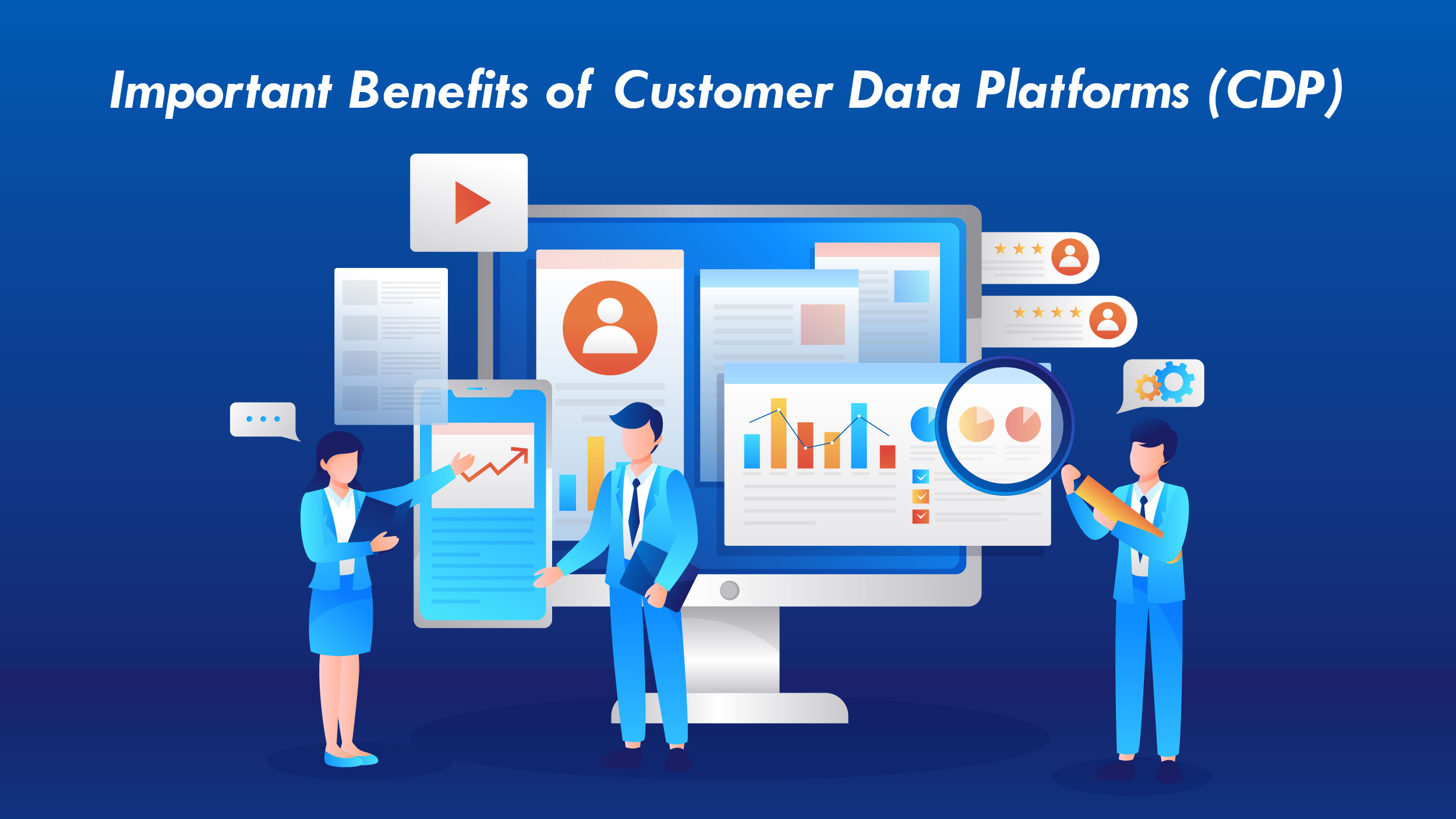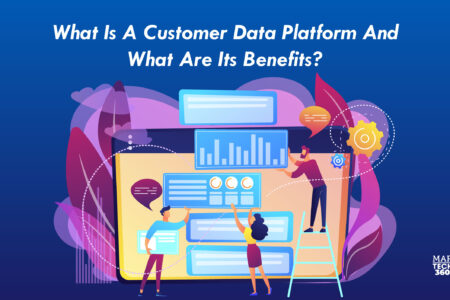Consider the most recent instance when you bought a computer online. Your research likely followed a pattern similar to this:
- Google searching for the best computers.
- Visiting review sites and retailers.
- Watching technical detail videos.
- Research the best place to buy, comparing costs, shipping, and returns.
Throughout, you interacted with the company through website visits, live chat, Facebook ads, and email, resulting in a personalized experience.
How did the company manage all of this? Chances are, they employed a customer data platform (CDP) to customize their marketing for you.
What is a Customer Data Platform?
A customer data platform (CDP) is used to collect, organize, and unify customer data that is collected from multiple sources. CDPs are useful for collecting and structuring real-time data. It collects data from various sources such as Customer Relationship Management (CRM) platforms, websites, marketing emails, social media, etc., and structures or organizes them into individual or centralized customer profiles.
Customer data platforms help in involving and bringing in known audiences in different marketing channels. It connects to your marketing systems such as your email, e-commerce sites, or digital ad platforms. Here are some important benefits of a CDP.
Important Benefits of Customer Data Platforms (CDP)

CDPs offer a never-seen-before perspective of a customer. It can collect data from different sources and unify it across all devices and channels while also making it usable and available on other systems.
CDPs largely help in decision-making and campaign creation. This allows companies to be more competitive and stay ahead of their competitors. In addition, the level of transparency provided by CDPs allows marketers to react quickly to the changing market dynamics.
A customer data platform is highly adaptive as well; it can create and connect a flexible technology stack that can adapt to changing user behavior as well as evolving technological trends in the market. Simply put, these tools strive to create better customer experiences.
The data collected by CDPs are not limited to marketing but it is also dependent on data collected and provided by business intelligence and customer service teams. This makes a CDP provide democratized data.
Apart from all this CDPs also significantly help in enriching company relationships with partners and suppliers. This is possible because CDPs provide a more diverse set of data and profiles that help in segmented and high-quality interactions with partners and suppliers.
The most important benefit of a customer data platform has to be its unified approach. CDPs provide a unified view of customer behavior which helps companies to better see and understand their preferences. This further helps in creating a more comprehensive customer experience.
The above-mentioned benefits together imply the importance of having e insightful, accessible, and well-maintained customer data. Now that we know the advantages let’s talk about what is a CDP vs CRM.
Also Read: The Ultimate Guide to Business Software Integration: A Comprehensive Overview
CDP vs CRM
CDP and CRM tools share functions in collecting customer data for organizational benefits. Yet, their main distinction lies in how they operate. A CDP independently compiles extensive customer profiles from diverse sources, while a CRM concentrates on tracking intentional interactions entered manually by customers.
Here’s a breakdown of essential differences between CDPs and CRMs.
- CDPs capture data from anonymous visitors; CRMs focus on known or potential customers.
- CDPs analyze lifetime behavior and journeys; CRMs prioritize sales pipeline and forecasting.
- CDPs track both online and offline data; CRMs rely on manual entry for offline data.
- CDPs handle multiple data points from numerous sources, minimizing replication or loss, while CRMs are prone to individual data entry errors.
Top 3 Customer Data Platform Software Providers You Can Consider in 2023
1. Segment
A CDP facilitates the gathering and consolidation of customer data from various online channels, providing businesses with a comprehensive view of customer journeys. Users can link data across 300+ marketing, analytics, and data warehousing tools.
2. Emarsys
Enabling businesses to establish an omnichannel strategy, it gathers and analyzes data from diverse sources. Features encompass reporting, cross-channel automation, personalization, and industry-tailored solutions, such as those for e-commerce, travel, and retail.
3. Exponea
A comprehensive CDP, primarily tailored for e-commerce and B2C enterprises. This CDP solution aids in connecting and monitoring data from online and offline sources, offering a unified customer perspective and enabling personalized campaigns.
4. Optimove
At its core, Optimove is a hub for relationship marketing that utilizes a customer Data management platform. This platform is designed to collect, segment, and analyze customer data in order to provide businesses with valuable insights. With Optimove’s technology suite, businesses can effectively create, track, and optimize personalized multi-channel campaigns.
5. Tealium AudienceStream CDP
By leveraging this tool, organizations can improve their interaction with their target audience and develop detailed customer profiles. The information contained within these profiles can assist businesses in identifying customers of high or low value, gaining valuable insights into engagement strategies, and identifying significant milestones that can be utilized for audience segmentation.
Wrapping Things Up
The power of a customer data platform (CDP) in transforming the landscape of customer interactions cannot be overstated. As businesses navigate the dynamic realms of e-commerce and B2C relationships, the role of a customer data management platform becomes a linchpin in delivering personalized experiences and fostering lasting connections. By seamlessly connecting and consolidating data across various channels, a CDP not only provides a holistic view of each customer but also empowers businesses to craft targeted, meaningful campaigns. The era of data-driven decision-making is upon us, and the strategic implementation of robust customer data platform software is the key to unlocking a future where customer engagement is not just a transaction but a personalized journey.

